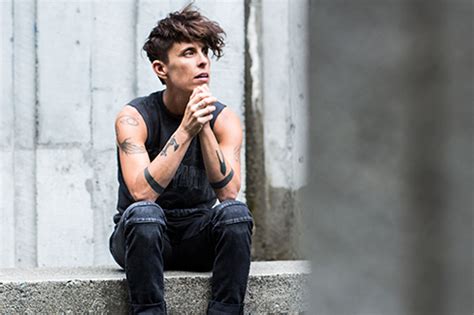A Quote by Erica Jong
If you imagine the world listening, you'll never write a line. That's why privacy is so important. You should write first drafts as if they will never be shown to anyone.
Related Quotes
I never learned to be a writer. I never took screenwriting courses. I never read anyone's scripts. As a writer, my only guiding principle has been to write about things that scare me, write about things that make me feel vulnerable, write about things that will expose my deepest fears, so that's how I write.
... the designer of a new system must not only be the implementor and the first large-scale user; the designer should also write the first user manual. ... If I had not participated fully in all these activities, literally hundreds of improvements would never have been made, because I would never have thought of them or perceived why they were important.
Writers often have a 'drunk' that is different than anyone else's. That's why it's so insidious and so damning. First of all, because they can write when they're drinking - or they think they can. A lot of writers will tell me - and this is the latest one I've heard - you drink while you're thinking about what to write, but when you actually write, you sober up.
I had written eight drafts of the Lemony Snicket' screenplay when this changing-of-the-guard thing happened, and I said to the new producers, "I don't think I could write any more drafts." I guess I was sort of hoping they would say, "Well that's okay, this last one is perfect." But instead, they said, "It's funny you should say that. We don't think you can write any more drafts either."



































